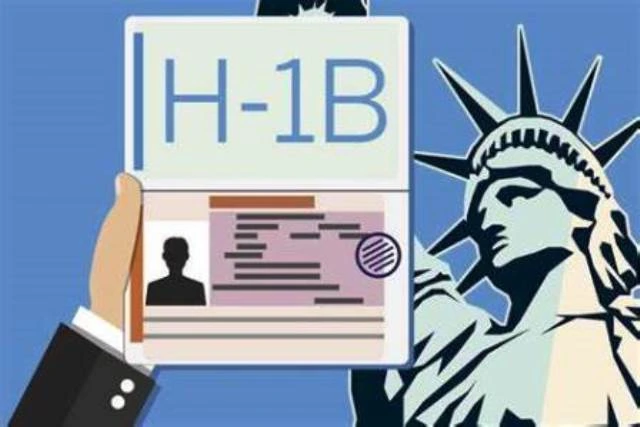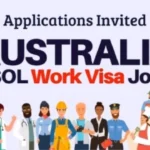In a dramatic shift in U.S. immigration policy, President Donald Trump has announced the end of birthright citizenship, which has long allowed children born in the United States to automatically gain U.S. citizenship, regardless of their parents’ immigration status. This change has left many foreign workers, particularly H-1B visa holders, facing an uncertain future. The ramifications of this decision are felt most acutely by families who are concerned about their children’s citizenship status, especially those who are not permanent residents but are residing temporarily in the U.S.
The End of Birthright Citizenship in the U.S. – What It Means for H-1B Visa Holders
In this article, we delve deeper into the impact of Trump’s decision on H-1B visa holders, their families, and the larger implications for the future of immigration in the U.S. Let’s explore the complexities surrounding this decision, especially for those who have always viewed America as the land of opportunity.
What is Birthright Citizenship and Why Is It Important?
Birthright citizenship refers to the legal principle that grants U.S. citizenship to any child born within the country’s borders, regardless of the immigration status of their parents. This right has been enshrined in the 14th Amendment of the U.S. Constitution for over a century. Trump’s decision to end birthright citizenship has stirred significant concern, particularly among temporary visa holders, as their children could now be excluded from receiving U.S. citizenship upon birth.
How Does This Affect H-1B Visa Holders?
For H-1B visa holders, the news is particularly unsettling. H-1B visas are typically issued to foreign skilled workers, and each year, thousands of Indian workers are granted these visas to fill roles in various U.S. industries. However, the announcement that children born to H-1B holders may no longer receive automatic U.S. citizenship is a cause of anxiety.
| Key Impact of Birthright Citizenship Ending | Details |
|---|---|
| H-1B Visa Holders | Their children may not automatically receive U.S. citizenship. |
| Children’s Future | H-1B visa holders are uncertain about their children’s status. |
| Employment in U.S. | Companies may face difficulties hiring foreign workers due to these new restrictions. |
| Visa Process Complications | The end of birthright citizenship could complicate the immigration process further. |
The Emotional Impact on H-1B Visa Holders and Their Families
The emotional toll of Trump’s decision is evident in the words of many H-1B visa holders. Many, like Ajay, who recently received news of his wife’s pregnancy, feel that their dreams of building a life in the U.S. are now at risk. Ajay shares, “For many of us, the American Dream is now fading. This new policy threatens the future we envisioned here.”
How the Policy Affects Immigrant Entrepreneurs and Tech Industry
Rajat Suri, a tech entrepreneur and co-founder of Lyft Inc., also expressed concerns about the policy’s long-term impact on the U.S. economy. He believes that U.S. companies might struggle to attract foreign talent, especially when the children of foreign workers will no longer be granted citizenship. He states, “If a child is not going to become a U.S. citizen, it’s a huge barrier for companies to recruit foreign talent to come here.”
The Broader Consequences of Ending Birthright Citizenship
The implications of this decision extend beyond just H-1B visa holders. David Bier, Director of Immigration Studies at the Cato Institute, points out that the change could make it increasingly difficult for international students who graduate from U.S. colleges to secure employment in the U.S. Furthermore, U.S. companies may start shifting their investments to other countries, like India, as a result of these policy changes.
| Broader Impacts of Ending Birthright Citizenship | Details |
|---|---|
| Impact on Foreign Students | It could be harder for international students to find jobs in the U.S. after graduation. |
| Global Business Shifts | Companies may increasingly invest in countries like India. |
| Visa and Immigration Process | The new policy complicates the already difficult visa and immigration system. |
Uncertainty Among Families: What’s Next for Children Born on Temporary Visas?
One of the most pressing concerns among families is what the status of their children will be if they are born in the U.S. while their parents are on a temporary visa. Dr. Prasad Thotakura, a Dallas-based Indian-American surgeon, expressed the confusion many are feeling. “It’s unclear what status children born to temporary visa holders will have. This is creating widespread uncertainty among families,” he shared.
Legal and Practical Concerns: What Will Happen to Children Born to Temporary Visa Holders?
Ancy Varghese, a senior immigration lawyer at Visa Pro, highlights the legal chaos this decision may cause. According to Varghese, the new policy raises concerns about whether children born to H-1B visa holders will be stateless. “The stability of the entire family unit is at risk. We don’t know if these children will have the right documents or what their future holds,” she added.
The Emotional Strain on H-1B Visa Holders
Many foreign workers, like Sanjay, who came to the U.S. in 2019 to pursue a master’s degree, now find themselves unable to sleep as they worry about the future of their families. Sanjay’s wife is due to give birth shortly after Trump’s policy takes effect, and like many others, he now faces an uncertain future. “Until now, I thought I was living an amazing life, one that I could only dream of in India. But now, I can’t stop thinking about what will happen to my child,” he confides.
What’s Next for H-1B Visa Holders and Their Families?
As President Trump’s decision to end birthright citizenship begins to take effect, many H-1B visa holders find themselves caught in a web of uncertainty. The changes pose serious questions about the future of their children, who may no longer receive automatic U.S. citizenship. Moreover, the policy could create barriers for foreign workers, impact business growth, and shift global investment patterns.
While the situation remains in flux, it is clear that the American Dream is evolving. H-1B workers and their families must now navigate these new challenges and uncertainties as they strive to build their futures in the U.S.



